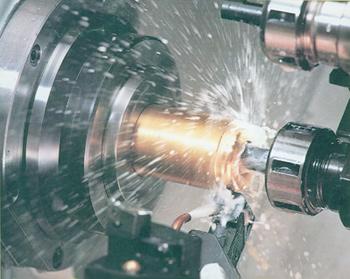The Function of Die Casting in Malaysia Automotive and Electronics Sectors
Die casting in Malaysia has become an essential element of the manufacturing
industry, contributing significantly to various industries such as automotive,
electronics, aerospace and consumer products. The process involves injecting
molten metal into a mold under high pressure in order to produce
precisely-crafted and complex components, with little requirement to process
them post-production. The Malaysian manufacturing landscape has evolved rapidly,
with companies investing in cutting-edge technology that can improve the quality
and efficiency of their die-cast items. In the process, this industry has
emerged as an essential link in the supply chain worldwide that supplies
high-quality metal components to international markets. The government's
initiatives to support technological advances and growth in the industry are
further enhancing Malaysia's standing as a die-casting hub in Southeast Asia.
With skilled workforce strong infrastructure, as well as strategically located
has resulted in Malaysia an attractive destination for companies seeking to
invest in die-casting manufacturing.
The automotive sector is one of the major users of die-cast
parts in Malaysia using the method to manufacture engine parts, transmission
housings and structural components. Materials that are lightweight, such as
aluminum and magnesium alloys are favored in automotive die casting because of
their strength-to-weight ratio and durability to corrosion. In the transition to
electric cars, there is a major reason for the increased demand for top-quality
parts made of die casting which increase energy efficiency as well as vehicle
performance. Local die-casting companies collaborate with international
automakers to offer precise-engineered parts that are in line with
internationally-respected quality standards. With Malaysia becoming an
automotive manufacturing hub in Southeast Asia, the die-casting business is
likely to grow further, integrating more automation and smart manufacturing
processes. This is due to the rising adoption of Industry 4.0 technology, which
improves production speed and accuracy.
The electronics and telecoms
industry within Malaysia can also profit greatly from die casting because the
process allows for the production of intricate metal parts which have superior
electrical and thermal conductivity. The country is a major exporter of
electronic components, providing global brands with die-cast enclosures and heat
sinks, connectors, and shielding casings. These parts are crucial for ensuring
the efficiency and reliability of electronic gadgets like smartphones computer
systems, laptops, information servers, as well as communication equipment. As
technology advances, die-casting companies in Malaysia focus on improving the
properties of materials, decreasing production costs, and improving durability
of products. The demand for lightweight and heat-resistant materials has led to
the development of aluminum and magnesium alloys, which offer superior
performance for high-end electronics. With the rise of 5G technology, and the
increased dependence on electronic gadgets, Malaysia's die casting industry is
expected to see steady growth in this industry.
Sustainability has become
a significant focus in Malaysia's die-casting industry as companies have adopted
eco-friendly manufacturing practices to minimize their impact on the
environment. Utilizing recyclable material, production methods that use less
energy, and waste reduction strategies have gained momentum, fueled by the
regulatory mandates and consumer demand for sustainable goods. Numerous
manufacturers have adopted closed-loop recycling techniques, enabling the reuse
of scrap metal and reduce reliance on raw material. Furthermore, advances in
filtration and emission control techniques have lowered the carbon footprint of
die casting factories. Incentives from the government to encourage eco-friendly
manufacturing have led businesses to invest in clean techniques, and ensure
compliance with international sustainability standards. With the world's
industries moving towards carbon-free production, Malaysia's dedication to
sustainable die casting will be crucial to keeping the edge it has in the global
market. To gather additional details kindly head to Senadiecasting
Technological advances in die casting are
transforming the manufacturing industry in Malaysia, and allowing firms to
create more complicated and efficient components. Innovative technologies like
computer-aided design , 3D printing for mold prototyping and monitoring in real
time systems are improving precision and helping to reduce production errors.
Automation and robotics are also becoming integrated into die-casting processes
to enhance production efficiency, cut down on labor expenses as well as ensure
consistency in high-quality. The advancements in technology allow Malaysian
die-casting firms to compete with global manufacturers by offering superior
products with less time to lead. Utilizing Industry 4.0 technologies, such as
the Internet of Things and artificial intelligence , further improves production
efficiency and predictive maintenance. By adopting these cutting-edge
technologies and processes, Malaysia's die casting industry is strengthening its
position as a high-tech manufacturing hub which is capable of meeting the
changing requirements of global markets.
The die-casting industry in
Malaysia is poised to grow in the long run as demand for premium metal parts
continues to grow. Malaysia's strategically located location as well as its
skilled workforce and commitment to technological innovation has made it a
leading manufacturing hub in the region. Businesses that adopt automation,
artificial intelligence, and processes that are driven by data are gaining a
competitive edge by ensuring productivity and top-quality. Due to increasing use
in the automotive, electronics, as well as aerospace and aviation industries,
die-casting companies located in Malaysia are in a position to increase their
capabilities as well as strengthen their international presence. Since
sustainability is becoming a major focus, manufacturers that adopt
environmentally friendly practices and sustainable techniques will have a better
chance of achieving the future. The evolution of the die-casting industry in
Malaysia is a testament to the nation's commitment to manufacturing with high
precision, innovating as well as the development of its economy, solidifying its
role as the world's pioneer in the field of metal casting.
Comments
Post a Comment